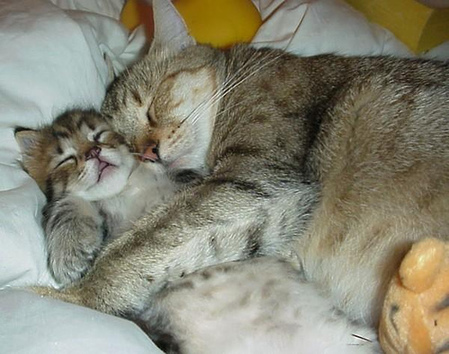|
The Breadcrumbs widget will appear here on the published site.
What People Don't Get About Relationship Anarchists
I was a relationship anarchist before I knew what the word “relationship anarchy” meant. Relationship anarchy is more than an intellectual pursuit. It’s about living, learning, and loving to our fullest capacity.
When I describe relationship anarchy to people, they think it’s about conforming my relationships to a set of standards. What they don’t understand is that my heart has been affirming relationship anarchy as my personal truth for most of my life. Sure, relationship anarchy is about loving beyond the oppressive restrictions imposed upon my relationships by large-scale sociological influences. Relationship anarchy is also the best term to describe how my feelings function. After all, polyamorous relationships aren't necessarily free from mononormativity. Our culture has us living under the assumption that monogamous is not only normal, but the "default" state of a committed relationship. Much like heteronormativity, mononormativity plays a heavy hand in shaping the ideals and norms that create the image of romantic relationships. People spend their entire lives in pursuit of The One blinds us from finding other lovers to bring us happiness. Years of tacit and explicit socialization create the illusion of mononormativity. In turn, we perpetuate mononormativity through our behaviors and beliefs. When I was 8 years old or so, I was among the lovesick 90’s masses who drooled over the actors from Dawson’s Creek. As I watched show with my cousins, the screen grew dim with a steamy vibe. Pacey Witter started passionately kissing his teacher, Tamara Jacobs. One of them mentioned how they couldn’t decide if they’d rather date Witter or the heartthrob protagonist, Dawson Leery. “Why can’t you just date both?” I asked. “No. That’s called 'a threesome,'” my cousin explained, “and that’s very, very bad.” Before that moment, the thought of choosing one crush over had never even occurred to me. It was the first time I realized that society found my desire to be with more than one person to be totally aberrant. It was only a matter of time until I grew to acknowledge my desires as nothing more than flaws or impulses to be overcome. In the limited context of mononormativity, I couldn’t truly relate to my feelings in a healthy way. That’s why I mostly cringed at my close high school friend whenever she told me she had opened one of her relationships. It’s not that I made her feel bad about being non-monogamous, but I certainly saw her position as an inferior choice to monogamy. I cited things like false science and reduced risk of STD contraction as benefits of monogamy. In reality, I was communicating nothing more than society’s bias. At that time, I proudly subjected my relationships to the oppressive norms that I seek freedom from today. Discovering relationship anarchy was one of the most eureka-like moments I’ve ever experienced. Relationship structures like the “primary/secondary” models always felt unnatural to me because that dynamic automatically positions one relationship above all others. My relationships might vary in terms intimacy, but I just acknowledge each of relationship as a unique expression of love. That doesn't necessarily mean that I think of loving certain people more or less. Love is not a competition. Healthy relationships come in all degrees of intimacy and carry all kinds of distinct features. For me, relationships are not about loving someone more or less, but rather loving each person on an individual basis that works for you. Sure, I love my partner very much and they occupy a very “primary” position in my life. But my heart doesn’t rank my relationships according to an ordinal scale. I also don't automatically prioritize my romantic connections over my platonic relationships like I've seen so many others do. I feel free to pursue connections beyond the social confines of heteronormativity, oppressive gender constructs, monogamy, etc. Relationship anarchy is all I've ever been, all I've ever wanted, and more. Yes, I do strive to emancipate my relationships from of the oppressive structures and norms that might otherwise fetter my relationships. I spend a lot of time thinking about and discussing hierarchies, power disparities, labels, and all the other features many of us accept as “givens” in relationships. I live in a world that has tons of problematic baggage attached to it. Thus, regressive relationship norms like institutionalized monogamy, sexist gender roles, and internalized bigotry to encumber my ability to express and experience love to its fullest. That’s why I discuss the more problematic dimensions of love as the world knows it. In the end, I strive to make the world a happier place for myself and other people through relationship anarchy. I do this by being true to myself. #Real #RelationshipAnarchy #Polyamory #Monogamy #Problematic #LoveOutsideOfTheBox #TrueLoveComesInAllShades Visit our shop and subscribe. Sponsor us. Submit and become a contributor. Like us on Facebook and follow us on Twitter. CommentsComments are closed.
|
|










